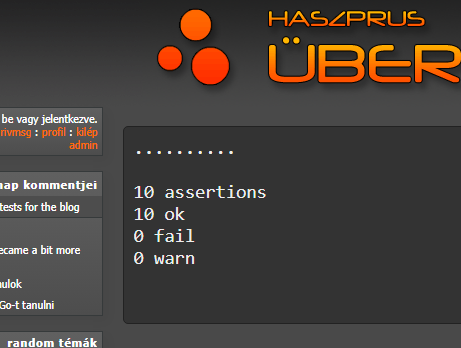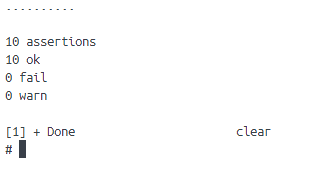step 1
$date = date("Y-m-d", $timestamp) // it works perfectly
step 2
install phpstan
turns out my $timestamp is a float, date() expects an int
step 3
how the heck is that possible?
simple. i do some math with the timestamp and get its result with ceil() which is a function that ceils a float to an int. but what kind of int? an integer number, like 1, 2, 3, etc, but it actually returns it as a float because float can store bigger numbers even if they are integer numbers.
anyways, simple solution:
(int)$timestamp
step 4
do i want to cast it every time in my whole codebase, like this?
it's time to extract this.
function ceilInt($float): int
would perfectly solve it in 1 or 2 lines with the body, right?
right.
but it can't be autoloaded because it's not in a class
so it should be in a Math class
class Math {
function ceilInt(float): int
}
but i dont want to use static functions as they are against proper testability right?
and i dont want to instantiate the Math every time I use it
so a DIContainer is necessary or something similar (lets stick with the DIContainer)
I wrote one x years ago so lets use that
oh uh it's a bit complex, best time for some testing
so let's setup phpunit but this time use docker for that
wild error messages appear (probably makes things hard that i can't use the latest php so documents usually differ from what i have to do)
no worries lets retry it 10 times with different approaches
okay got tired need a little break
moral of the story: how many devops engineers/architects does it need to display a date in php in 2024?
note: even the (int) casting was unnecessary as a starting point
anyways, testing is good. at some point when it couldnt install even the fucking phpunit, i started to write a test framework for a sec, but then i dropped the idea after 5 lines of dealing with different path structures on different environments (i could actually implement it, it's just too much hassle)
...
in the end that's how I ended up with a nice unit test framework. (i find joy in writing my own solutions if it wasn't obvious by now.)


in our next episode: what happened to the date which worked perfectly fine (as the language is intentionally built around dynamic types) before/despite the static analysis?
